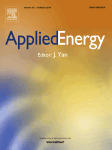 Paul Sanders (MSE) and Joshua Pearce (MSE/ECE) co-authored an article “Optimizing limited solar roof access by exergy analysis of solar thermal, photovoltaic, and hybrid photovoltaic thermal systems,” in “Applied Energy.”
Paul Sanders (MSE) and Joshua Pearce (MSE/ECE) co-authored an article “Optimizing limited solar roof access by exergy analysis of solar thermal, photovoltaic, and hybrid photovoltaic thermal systems,” in “Applied Energy.”
From Tech Today.
 Paul Sanders (MSE) and Joshua Pearce (MSE/ECE) co-authored an article “Optimizing limited solar roof access by exergy analysis of solar thermal, photovoltaic, and hybrid photovoltaic thermal systems,” in “Applied Energy.”
Paul Sanders (MSE) and Joshua Pearce (MSE/ECE) co-authored an article “Optimizing limited solar roof access by exergy analysis of solar thermal, photovoltaic, and hybrid photovoltaic thermal systems,” in “Applied Energy.”
From Tech Today.
MSE SEMINAR
Tuesday, February 11, 2014
11:00 am – 12:00 pm
Room 610, M&M Building
Concrete: The First – and Last – Engineered Material?
Prof. Lawrence Sutter
Department of Materials Science and Engineering
Michigan Technological University
Joshua Pearce (MSE/ECE) presented “Slashing Costs with Free and Open Source Scientific Equipment,” for the 22nd International Seminar: New Architecture: The State, Civil Society and the Ethical Market, in Quito, Ecuador.
In Print
Joshua Pearce (MSE/ECE) published a short comment in Nature on “Laboratory equipment: Cut costs with open-source hardware.”
From Tech Today.
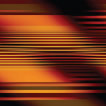
Many faculty, staff and students of the Michigan Tech Transportation Institute (MTTI) attended the 93th Transportation Research Board (TRB) annual meeting in Washington, DC, recently.
From the Materials Science Department, Larry Sutter presented two papers “Use of Surface Sealers to Reduce Ingress of Deicing Chemicals on Portland Cement Concrete” and “Field Study of Air Content Stability in Slipform Paving Process,” the latter co-authored with Jerry Anzalone.
Read more at Tech Today.
Joshua Pearce’s group’s (MSE/ECE) work in solar energy was covered in an article on“Snow-covered panels: Does solar power work in the Upper Peninsula?” in the UP Second Wave and he is quoted in an article “Efficient recovery justifies silver’s use in solar cells” in Chemistry World.
From Tech Today.
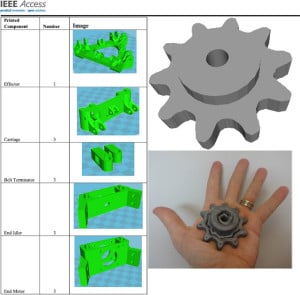 A Michigan Tech MSE/ECE team’s work on 3D printing and strategic alliances with industry was covered by MSN Money, the Wall Street Journal, Business Week, 3D Printing Industry and many others.
A Michigan Tech MSE/ECE team’s work on 3D printing and strategic alliances with industry was covered by MSN Money, the Wall Street Journal, Business Week, 3D Printing Industry and many others.
From Tech Today.
Corp Magazine published an article on 3D printing revolution, quoting Associate Professor Joshua Pearce (MSE), with photos of Pearce and one of his 3-D printers. See Corp Magazine.
From Tech Today.
Open Electronics ranked Michigan Tech’s open-source metal 3D printer as one of 10 of the Most Incredible Open Source Hardware projects born in 2013.
Michigan Tech’s 3D Printers for Peace Contest was listed as one of the top 5 3D printing applications of 2013 by 3D Printing Industry.
From Tech Today.
Notables
Malaysi’s HongKiat named Michigan Tech’s metal 3D printing as one of 6 Tech Trends That Will Dominate 2014.
From Tech Today.
6 Tech Trends That Will Dominate 2014
6. 3D Printers
Metal printers are usually available for half a million, and only to organizations, not for personal use. Earlier this December, Michigan Technological University announced their open source 3D metal printer, which is available for only $1500.
Read more at HongKiat.
In the News
Joshua Pearce (MSE/ECE) was interviewed for Teknisk Ukeblad (Technical Weekly), which is Norway’s leading engineering journal on 3D printing. His group’s 3D printing research was also covered by Ingeniøren, a Danish weekly newspaper specializing in engineering topics. Michigan Tech’s research in 3D printing was discussed in The Conversation in an article “What price our fascination with cheaper 3D printing?”
From Tech Today.
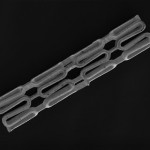 Professor Jarek Drelich and PhD student Patrick Bowen (MSE) were featured in the QMed article: “Stent Designers Think Zinc.”
Professor Jarek Drelich and PhD student Patrick Bowen (MSE) were featured in the QMed article: “Stent Designers Think Zinc.”
From Tech Today.
Seeking an alternative to magnesium-based stents, researchers at Michigan Technological University (Houghton) are conducting studies on a stent design made from zinc. This material, the scientists say, offers better degradation rates than magnesium and can be processed in such a way as to increase its mechanical properties. In the following conversation, Jaroslaw Drelich, professor in the department of materials science engineering, and Patrick Bowen, PhD candidate in materials science and engineering, share their insights into zinc as a potential candidate for next-generation absorbable stents.
Read the full interview at Qmed, by Bob Michaels.
Learn more about stent research at Surface Innovations, a research group at Michigan Tech.
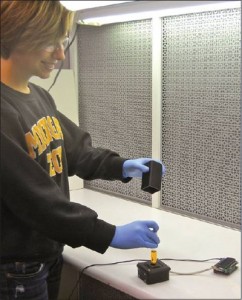
Joshua Pearce (MSE/ECE) published a feature article “Technology whose time has come” in the January issue of Physics World.
From Tech Today.
Technology whose time has come
Reinvented as open-source appropriate technology (OSAT), the modern form of AT focuses on technologies that promote sustainable development and are designed in the same fashion as free and open-source software (FOSS).
Physicists have a good track record of opening up science for the common good. We have been sharing our open-access e-prints on arXiv for more than 20 years, long before “open access” became a buzzword. Given this background, I think it is time for physicists to take a serious look at OSAT.
Read more at Physics World, by Joshua Pearce.
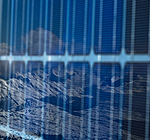 Erin Cassidy quotes Associate Professor Joshua Pearce (MSE/ECE) in the AccuWeather story “Are Solar Panels Usable in Snowy Climates?” which is based in part on research being conducted at the Keweenaw Research Center.
Erin Cassidy quotes Associate Professor Joshua Pearce (MSE/ECE) in the AccuWeather story “Are Solar Panels Usable in Snowy Climates?” which is based in part on research being conducted at the Keweenaw Research Center.
From Tech Today.
Are Solar Panels Usable in Snowy Climates?
Joshua Pearce, associate professor at Michigan Tech University (MTU), said, “If snow is completely covering the panel, you are obviously only going to get the amount of energy out of the panel from the amount of light that is able to pass through the snow.”
Pearce describes several methods they have used to increase the efficiency of panels with snow accumulations.
Read more at AccuWeather.com.
MSE SEMINAR
Tuesday, January 14, 2014
11:00 am – 12:00 pm
Room 610, M&M Building
Contact Angles on Rough Surfaces Including
Superhydrophobic and Superhydrophilic Surfaces
Jaroslaw Drelich
Department of Materials Science and Engineering
Michigan Technological University
Houghton, MI